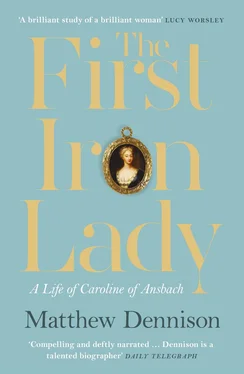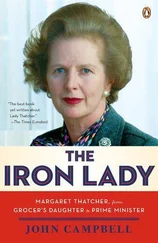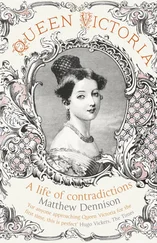‘He is very impertinent to suppose that I, who refus’d to be Empress for the Sake of the Protestant Religion, don’t understand it fully,’ Caroline later remarked when a well-meaning Bishop of London offered to ‘satisfy her in any Doubts or Scruples she might have in regard to our Religion, or to explain Anything to her which she did not comprehend’. 138Her lady-in-waiting described her on the occasion as ‘a little nettled’.
For the remainder of her life Caroline took pride in her renunciation, her determination to ‘slight th’Imperial Diadem’. 139To Leibniz, as late as November 1715, she wrote, ‘You know that I am not at all a Jesuit,’ a reminder of her hard-fought sacrifice. 140The vehemence of her feelings indicates the trouble it had cost her – and a certain shrewdness in her estimate of the value of her resistance that transcended Duke Anton Ulrich’s elaborate fictions.
II
‘The affections of the heart’
Caroline was wooed by a prince in disguise and in a hurry, Figuelotte’s nephew George Augustus, Electoral Prince of Hanover.
His departure for Ansbach – at midnight, under cloak of darkness – suggests romance, even derring-do. He was short in stature, vain, with pale bulbous eyes, fine hair of an indeterminate colour and a peppery self-importance – or, in Toland’s characteristically rosier assessment, of ‘a winning countenance, speaks gracefully, for his Years a great Master of History, a generous disposition and virtuous inclinations’. 1Unlike his intended bride he was fascinated by ghosts and werewolves, his religious outlook ‘without scruples, zeal or inquiry’. 2
It was the first week of June 1705. George Augustus travelled in the garb of a Hanoverian nobleman and called himself ‘von dem Bussche’. His former tutor, Baron Philipp Adam von Eltz, a Hanoverian privy councillor, accompanied him under the alias ‘Steding’. With a single manservant, they directed their tracks southwards to Ansbach. There they presented themselves at the margrave’s court as travellers en route for Nuremburg. Only the elector George Louis knew their true destination and purpose. Afraid of the reaction of Frederick in Berlin, he insisted that both remain secret.
The prince was twenty-one, eight months younger than Caroline. From his grandmother, the dowager electress Sophia, and his aunt Figuelotte he had heard her charms itemised and magnified. For the better part of a decade his father had pursued fruitless negotiations with Charles XII of Sweden. His initial purpose had been to win for George Augustus the hand of the king’s stubborn, musical younger sister, Ulrike Eleonore. Following a switch of tactic in 1702, he had targeted Charles’s elder sister, Hedwig Sophie, recently widowed. In December Figuelotte wrote that the marriage was settled. 3She was mistaken. In both cases George Louis’s tenacity went unrewarded, and in February 1705 he had begun to look elsewhere for his son’s bride, with no apparent regret on George Augustus’s part.
Caroline’s blonde voluptuousness was quite to contemporary German tastes. Her natural good looks made a pretty contrast to the ‘rosy cheeks, snowy Foreheads and bosoms, jet Eyebrows, … scarlet lips … [and] Coal black Hair’ that, with crude cosmetic help, were universal among the ‘beauties’ of George Louis’s court. 4Her connection to Prussia’s newly royal Hohenzollerns had its value too. During the spring of 1705 the English envoy in Berlin repeatedly reported a rumour that Frederick’s family intended to reclaim their ward for themselves: the prince royal, Frederick William, wanted her for his wife. 5In Hanover the electoral family reacted with stealth and belated alacrity. ‘There is in this court a real desire of marrying the prince very soon,’ wrote Sir Edmund Poley. 6Thwarted by the secrecy of George Augustus’s midnight flit – ‘a mystery of which I know nothing’ – Poley correctly hazarded the amorous purpose of his journey. The prince’s attentions, he offered, would be directed at one of three likely candidates: princesses of Hesse-Cassel and Saxe-Zeitz, and ‘the Princess of Ansbach’. 7
While Poley puzzled, George Louis’s plans progressed apace. Confident in his disguise, the mysterious von dem Bussche enjoyed a conversation alone with Caroline at her brother’s summer palace at Triesdorf. To what extent he hoodwinked Caroline, with her ‘ready and quick Apprehension, [and] lively and strong Imagination’, not to mention her familiarity with both his aunt and his grandmother, remains uncertain. 8To his father, George Augustus reported the result as love at first sight: ‘he would not think of anybody else’. 9It was an outcome shaped less decisively by Caroline’s ‘uncommon turn for conversation, assisted by a natural vivacity, and very peculiar talents for mirth and humour’ than her considerable physical attractions, described by one historian as ‘a bosom of exemplary magnitude … encased in the fairest and pinkest of skins’. 10As he wrote to Caroline herself, ‘I found that all I had heard about your charms did not nearly equal what I saw.’ 11Job done, he returned with von Eltz post haste to Hanover.
There, discussions with George Louis lasted two hours and left the dour and fractious elector in uncommonly good humour. All that remained was for von Eltz to retrace his steps to Ansbach and, following to the letter George Louis’s careful instructions, prosecute the prince’s suit first with Caroline and afterwards with her brother. A single injunction dominated von Eltz’s orders: that he ‘guard in every way against the Princess having any kind of communication with the Court of Berlin until such time as this project of marriage is so far established as to prevent any possibility of its being upset’. 12Fixed in his purpose, the elector did not intend his Prussian brother-in-law to thwart him.
Darkness, disguises and the utmost discretion were no shield against the compulsive gossip of courtiers and diplomats. As George Louis had predicted, speculation reached its most intense in Berlin, Caroline’s home until the previous winter. From there, Lord Raby wrote to George Stepney on 5 July, ‘Some are uneasy at this Court at the late journey incognito of the prince Electoral of Hanover.’ Again, Raby reported, many cited the Princess of Hesse-Cassel as George Augustus’s object. Her brother had married Frederick’s daughter Louise Dorothea, and ‘they can’t help being jealous of so audacious an allegiance for the House of Luenburg [sic]’. Others came closer to the mark. They ‘say that the prince was at Ansbach to see that princess who refused last year to Change her Religion to have the King of Spain Charles the 3rd’. 13Already, her resistance to apostasy defined Caroline. For good measure Raby enclosed a description of Figuelotte’s funeral. Catching up from behind, belatedly Poley described Caroline as the ‘most agreeable Princess in Germany’. 14
What neither Raby nor Berlin’s gossipmongers realised was that, two weeks before Raby’s letter, both Caroline and her brother William Frederick had accepted a highly secret formal proposal of marriage on the part of George Augustus. Vienna, too, remained misguidedly optimistic. On 24 June, more than six months after Leibniz composed Caroline’s written refusal, an imperial emissary requested a meeting of members of the courts of Vienna and Ansbach ‘to make a final representation on behalf of the King of Spain’. To add ballast to his request, he wrote on the joint instructions of the Elector Palatine and the emperor. 15
By the end of July the marriage contract had been signed. By early September, Wilhelmine Karoline, acclaimed in the formal documentation as ‘Princess of Brandenburg in Prussia, of Magdeburg, Stettin and Pomerania, of Casuben and Wenden, Duchess of Crossen in Silesia, Electress of Nuremburg, Princess of Halberstadt, Minden and Cannin and Countess of Hohenzollern’, had exchanged Ansbach for Hanover, and the uncertainty of spinsterhood for marriage to the Electoral Prince of Brunswick-Lüneburg. Generous within his means, her brother bestowed on her a dowry equivalent to around £4,000 and a trousseau that included ‘a splendid outfit of jewels’, items of silver and, inevitably, clothes; her later claim of having come to George Augustus ‘naked’ was a conventional enough exaggeration. 16George Louis assigned to Caroline the castle of Herzberg as her dower house in the event of George Augustus’s death, and a guarantee of 14,000 thalers for her widowhood. 17
Читать дальше












